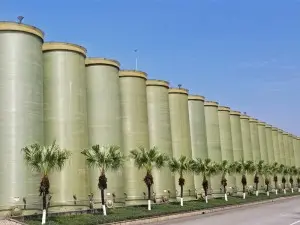
-
 Afrikaans
Afrikaans -
 Albanian
Albanian -
 Amharic
Amharic -
 Arabic
Arabic -
 Armenian
Armenian -
 Azerbaijani
Azerbaijani -
 Basque
Basque -
 Belarusian
Belarusian -
 Bengali
Bengali -
 Bosnian
Bosnian -
 Bulgarian
Bulgarian -
 Catalan
Catalan -
 Cebuano
Cebuano -
 China
China -
 China (Taiwan)
China (Taiwan) -
 Corsican
Corsican -
 Croatian
Croatian -
 Czech
Czech -
 Danish
Danish -
 Dutch
Dutch -
 English
English -
 Esperanto
Esperanto -
 Estonian
Estonian -
 Finnish
Finnish -
 French
French -
 Frisian
Frisian -
 Galician
Galician -
 Georgian
Georgian -
 German
German -
 Greek
Greek -
 Gujarati
Gujarati -
 Haitian Creole
Haitian Creole -
 hausa
hausa -
 hawaiian
hawaiian -
 Hebrew
Hebrew -
 Hindi
Hindi -
 Miao
Miao -
 Hungarian
Hungarian -
 Icelandic
Icelandic -
 igbo
igbo -
 Indonesian
Indonesian -
 irish
irish -
 Italian
Italian -
 Japanese
Japanese -
 Javanese
Javanese -
 Kannada
Kannada -
 kazakh
kazakh -
 Khmer
Khmer -
 Rwandese
Rwandese -
 Korean
Korean -
 Kurdish
Kurdish -
 Kyrgyz
Kyrgyz -
 Lao
Lao -
 Latin
Latin -
 Latvian
Latvian -
 Lithuanian
Lithuanian -
 Luxembourgish
Luxembourgish -
 Macedonian
Macedonian -
 Malgashi
Malgashi -
 Malay
Malay -
 Malayalam
Malayalam -
 Maltese
Maltese -
 Maori
Maori -
 Marathi
Marathi -
 Mongolian
Mongolian -
 Myanmar
Myanmar -
 Nepali
Nepali -
 Norwegian
Norwegian -
 Norwegian
Norwegian -
 Occitan
Occitan -
 Pashto
Pashto -
 Persian
Persian -
 Polish
Polish -
 Portuguese
Portuguese -
 Punjabi
Punjabi -
 Romanian
Romanian -
 Russian
Russian -
 Samoan
Samoan -
 Scottish Gaelic
Scottish Gaelic -
 Serbian
Serbian -
 Sesotho
Sesotho -
 Shona
Shona -
 Sindhi
Sindhi -
 Sinhala
Sinhala -
 Slovak
Slovak -
 Slovenian
Slovenian -
 Somali
Somali -
 Spanish
Spanish -
 Sundanese
Sundanese -
 Swahili
Swahili -
 Swedish
Swedish -
 Tagalog
Tagalog -
 Tajik
Tajik -
 Tamil
Tamil -
 Tatar
Tatar -
 Telugu
Telugu -
 Thai
Thai -
 Turkish
Turkish -
 Turkmen
Turkmen -
 Ukrainian
Ukrainian -
 Urdu
Urdu -
 Uighur
Uighur -
 Uzbek
Uzbek -
 Vietnamese
Vietnamese -
 Welsh
Welsh -
 Bantu
Bantu -
 Yiddish
Yiddish -
 Yoruba
Yoruba -
 Zulu
Zulu
Customized Fiberglass Fittings for Your Unique Project Needs
The Rise of Fiberglass Customized Fittings
In recent years, the demand for customized fittings made from fiberglass has surged across various industries. These fittings, known for their versatility, durability, and corrosion resistance, have become indispensable components in sectors ranging from construction and plumbing to automotive and aerospace. This article delves into the advantages of fiberglass customized fittings and their increasing importance in modern manufacturing and infrastructure.
Understanding Fiberglass
Fiberglass, a composite material made from fine glass fibers, is renowned for its lightweight and high-strength characteristics. When woven together and combined with a resin, fiberglass creates a sturdy yet adaptable material that can be molded into a range of shapes and sizes. This makes it a go-to choice for customized fittings, which can be tailored to specific requirements in both functionality and aesthetics.
Advantages of Fiberglass Customized Fittings
1. Corrosion Resistance One of the standout features of fiberglass is its excellent resistance to corrosion. Unlike metals, fiberglass does not rust, making it ideal for applications in harsh environments, such as chemical processing plants and marine applications. This property ensures longevity and reduces the need for frequent replacements, ultimately saving costs.
2. Lightweight Yet Strong Fiberglass fittings are considerably lighter than their metal counterparts, which simplifies handling and installation. This characteristic is especially beneficial in industries that prioritize weight efficiency, such as aerospace and automotive. Despite their lightweight nature, fiberglass fittings maintain structural integrity and can withstand substantial pressure.
3. Customization Options The ability to produce custom fittings is a major advantage of fiberglass. Manufacturers can create pieces that fit unique specifications, allowing for innovations in design that meet the exact needs of their projects. This customization can range from unique shapes to specific colors, ensuring that the fittings blend seamlessly into the intended environment.
fiberglass customized fittings

4. Cost-Effective While the initial investment in custom fiberglass fittings may be higher than traditional materials, the long-term savings are significant. Thanks to their durability and resistance to damage, maintenance costs are lowered, and the lifespan of installations is extended. Moreover, fewer replacements translate directly to reduced expenditures over time.
5. Thermal and Electrical Insulation Fiberglass fittings provide excellent thermal and electrical insulation, making them superior choices in applications involving high temperatures or electrical components. This capability ensures safety and efficiency in energy consumption, which is pivotal in industrial settings.
Applications of Fiberglass Customized Fittings
The applications of customized fiberglass fittings are diverse and impactful. In the construction industry, they are used in piping systems, air ducts, and structural components due to their moisture resistance and strength. In chemical processing, fittings that withstand caustic substances are tailor-made to ensure safety and reliability.
Moreover, the automotive industry has embraced fiberglass fittings for parts like bumpers and body panels, taking advantage of their lightweight properties to enhance fuel efficiency. Meanwhile, the aerospace sector utilizes fiberglass fittings in various applications to reduce overall aircraft weight without sacrificing strength.
Conclusion
The trend towards fiberglass customized fittings signifies a move towards more sustainable, efficient, and tailored solutions across numerous industries. Their advantages— from corrosion resistance and lightweight strength to extensive customization and cost-effectiveness—are reshaping how industries approach manufacturing and infrastructure projects. As technology continues to advance, we can expect fiberglass fittings to play an increasingly pivotal role in the development of innovative solutions that meet the demands of today's complex operational environments. Embracing fiberglass not only meets immediate needs but also prepares industries for a more sustainable and efficient future.
Latest news
-
Exploring the Benefits of Top Hammer Drifter Rods for Enhanced Drilling PerformanceNewsJun.10,2025
-
High-Precision Fiberglass Winding Machine for GRP/FRP Pipe Production – Reliable & Efficient SolutionsNewsJun.10,2025
-
FRP Pipes & Fittings for Shipbuilding - Corrosion-Resistant & LightweightNewsJun.09,2025
-
Premium FRP Flooring Solutions Durable & Slip-ResistantNewsJun.09,2025
-
Premium Fiberglass Rectangular Tanks Durable & Lightweight SolutionNewsJun.09,2025
-
Tapered Drill String Design Guide Durable Performance & UsesNewsJun.09,2025









